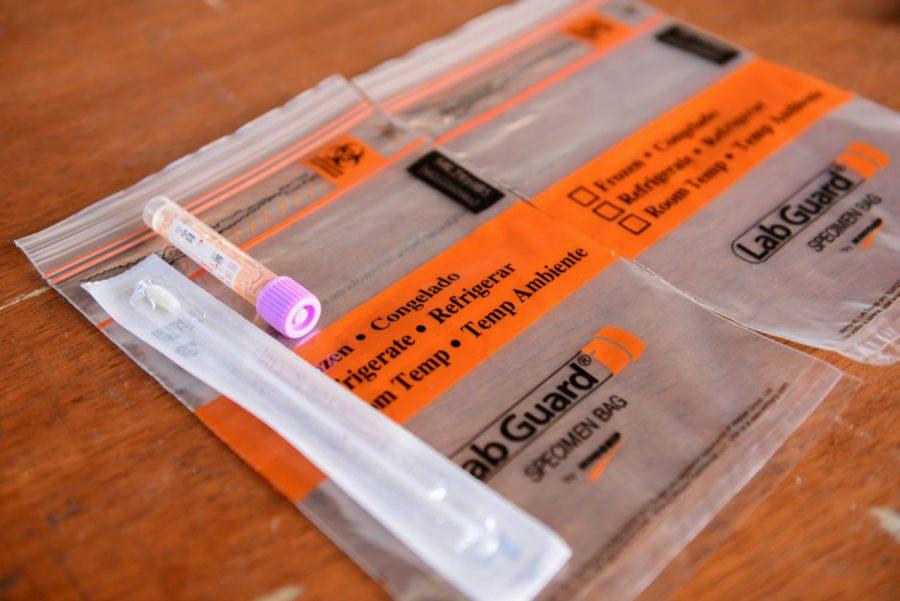Pitt adds 30 new COVID-19 cases since Thursday
March 30, 2021
Pitt added 30 new COVID-19 cases, composed of 29 students and one employee, between last Friday and Monday, with 67 students currently in isolation. The University’s previous case report, covering last Tuesday to Thursday, included 50 cases.
This is the sixth case report since Pitt moved to the Guarded Risk posture and arrives after the Allegheny County Health Department and state health officials have continued to report high case numbers. According to hospital data compiled by The New York Times, about 82% of ICU beds in the Pittsburgh area are currently occupied, compared with 78% statewide and 70% nationally. UPMC Shadyside is at 91% capacity and has 17 ICU beds remaining.
The COVID-19 Medical Response Office said the majority of cases are from on-campus students, and 13 residence halls have had cases of COVID-19. The CMRO said it is “deeply worried” about the increase in cases.
Chris Bonneau, president of the University Senate, said the spike in cases is “very concerning.”
“Previously most of the spread was off campus,” Bonneau, a political science professor, said. “However, it seems like we now have an outbreak on campus. We should take aggressive action to contain this, including implementing a shelter in place and moving all activities, including classes, online.”
Student Government Board president Eric Macadangdang also addressed the rising case numbers at the board’s Tuesday evening meeting. He said SGB is discussing safety precautions so campus can remain safe.
“With the prevalence of cases now on campus, SGB will be looking towards deliberating and considering suggestions regarding our risk postures, additional testing and other mitigation efforts to make sure that we have a safe campus,” Macadangdang said.
With many people planning to travel in the next few weeks, the CMRO said travelers should plan to quarantine at least seven days, getting tested during this time, or quarantine for 10 days without a test upon arrival to their destination. All travelers should follow these guidelines, regardless of immunization status.
The CMRO also said the University is working on a vaccine distribution plan and has not received any vaccines to administer this week. It also said the Allegheny County Health Department has lowered the minimum phase 1A age from 18 to 16.
The CMRO still encouraged those who are offered a COVID-19 vaccine to take it and not to wait until Pitt has more vaccines. For those who are vaccinated, the CMRO said they must remain vigilant because the pandemic is still ongoing, many are not vaccinated yet and there is still uncertainty about transmission of COVID-19 after vaccination.
The University has had 1,167 students and 225 employees test positive since June 26, with 1,100 students and 216 employees recovered thus far.
There are 67 students currently isolated at home or in Pitt’s isolation housing, which is reserved for those who have either a confirmed or suspected COVID-19 infection. Pitt has a total of about 300 isolation beds.
Pitt has implemented a systematic, random testing strategy, which involves testing several hundred students each week on Mondays and Wednesdays. The most recent random testing session on Pitt’s data dashboard is from last Thursday, March 18.
The University implemented a variety of new policies due to the pandemic during the spring semester, though some community members question whether the safeguards are sufficient. Students needed to have a negative COVID-19 test before moving back to campus and were encouraged to shelter in place at least seven days before moving in. Once on campus, students were required to shelter in place again for at least 10 days or until the CMRO announced that it was safe to move about campus. Students could attend classes during this time. Pitt has also planned testing of students to monitor the virus’ spread, required students, faculty and staff to complete COVID-19 training and imposed strict penalties for violations of health guidelines.
Kenyon Bonner, vice provost and dean of students, said student organizations who host a party or event can face suspension, and students hosting large parties can be suspended. Students living on campus who attend large parties can have their housing suspended for the semester, and students living off campus can be switched to persona non grata status, preventing them from entering University buildings or property.



